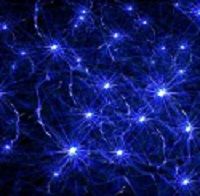Article
Brain Cell Toxin Triggers Neuron Loss in ALS
Author(s):
In a human model of amyotrophic lateral sclerosis, a toxin released by astrocytes in the brain triggered the loss of motor neurons.

Researchers report the discovery that in a human model of amyotrophic lateral sclerosis (ALS), a toxin released by astrocytes in the brain trigger the loss of motor neurons. The findings, which were published in the online edition of Neuron, show the toxins are also present in astrocytes taken directly from patients with ALS.
Study author Serge Przedborski, MD, PhD, of the Columbia University Medical Center, said the findings show that previously had been seen in mouse models of ALS is also happening in human patients.
In the study, researchers removed astrocytes from the brains and spinal cords of 6 ALS patients shortly after their deaths and placed the cells in petri dishes next to healthy motor neurons. Within 2 weeks, many of the motor neurons had shrunk and their cell membranes had disintegrated; about half of the motor neurons had died.
Astrocytes removed from people who died of causes other than ALS did not have an affect on motor neurons in close proximity.
The investigators also proved that the cause of the motor neurons’ death was a toxin released into the environment by immersing healthy motor neurons in the culture media of the astrocytes. The motor neurons died even without astrocytes if exposed to their cell media.
The toxin has not yet been identified, but the researchers found that the toxin triggers a biochemical cascade in the motor neurons that causes then to undergo a controlled cellular explosion. The astrocyte-triggered motor neuron death was shown to be prevented by inhibiting one of the key components of the molecular cascade.
The findings may lead to better ways to prevent motor neuron death in patients and potentially prolong life.





